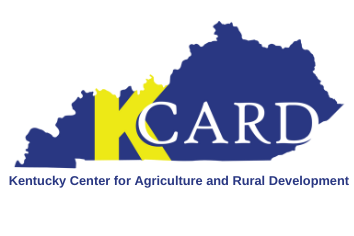Hopkinsville Elevator: A farmer-owned cooperative returning value to members
Founded in 1968, Hopkinsville Elevator in Kentucky began when a group of farmers recognized that there would be more value in their grain if they had ownership in where they sold it. Since then, the cooperative has grown to 3,500 members and has annual revenue of more than $600 million. While offering its members a place to sell grain is its core mission, Hopkinsville Elevator also owns an ethanol plant, a farm supply business, a finance company and crop insurance company.
The growth of the cooperative is due to the vision of its members, according to Jerry Good, general manager of Hopkinsville Elevator. Good has worked at the co-op for 41 years and has served as the general manager since 2009.
“It has grown because of the patron-owner,” says Good. “The farmers themselves are the ones that have made Hopkinsville Elevator as successful as it is today, along with a group of good, dedicated employees.”
The co-op has members in 64 counties in Kentucky and about 30 counties in Tennessee. Good believes that returning profits to the co-op members has played a large role in attracting new members.
“Returning profits to members is the biggest reason the co-op has experienced growth,” Good says. “This shows that the cooperative system really works and has attracted a lot of its new members. Over the last 20 years, we have returned over $130 million in cash back to the farmers, and that money goes back into local communities.”
Milestones critical to co-op’s success
Good cites two major milestones for sparking the growth and increased profitability of the co-op. First, in 1978, the co-op opened its river terminal facility in Clarksville, Tenn.
“Before we opened the facility in Clarksville, we were just a rail facility here in Hopkinsville; we realized that we needed another market besides rail,” explains Good. “Opening the Clarksville location gave us the ability to be more competitive with prices. This led to the biggest boom in membership and expansion into Tennessee and other counties in Kentucky.”
The second critical milestone was the opening of Commonwealth Agri-Energy in 2004, an ethanol plant owned by the co-op.
“A lot of the success and growth over the last 10 years has been due to the ethanol plant,” says Good. “It has been a great asset for our farmers.”
Dedicated board points the way
No co-op will succeed without a strong board of directors, and Hopkinsville Elevator has benefited from a strong group of farmer-members on its board to provide direction and leadership for the co-op.
“The board has the best interest of the co-op and its members in mind,” says Good. “As a group, they are all looking in the same direction down the road. They might not be seeing the same thing, but they are all looking in the same direction, which makes it easier to make decisions.”
Over the past couple of years, Hopkinsville Elevator has turned to the Kentucky Center for Agriculture and Rural Development (KCARD) for assistance in researching the feasibility of possible expansions. “Working with KCARD has worked well for us,” Good says. “It was very helpful to us to have KCARD compile the information and present it all in one package where it was easier for us to review and make an informed decision. A lot of businesses don’t utilize assets like KCARD enough.”
Good is not exactly sure what the future of Hopkinsville Elevator or agriculture will look like with the changing technology and regulations, but he is sure of one thing. “As a co-op, we will still do what we do best, which is to provide a service to our patron-members.”
Article first published in October 2016.

